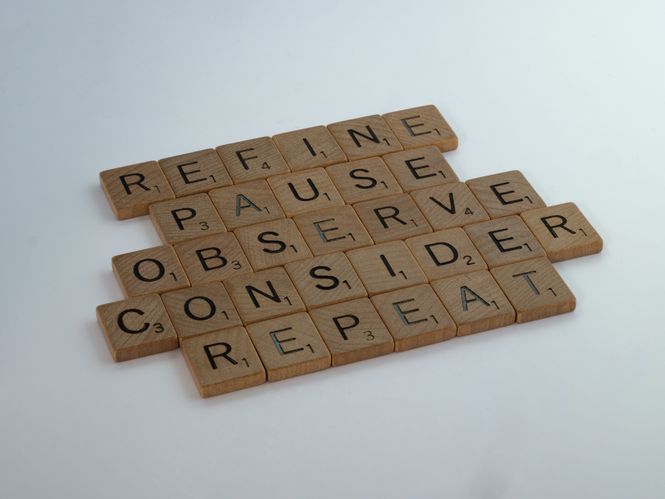
How to Have Effective Communication With Your Spouse to Have a Happy Marriage
A Little Back Story
Effective communication with your spouse? I never thought that would be a problem.
I’ve always been a fairly confident person; at least, I try to be. Maybe I’m not, who knows. Joe and I got married when I was 20 years old. At that time, I can assure you that I still had a bullet-proof mentality. The sky was the limit and I could do anything by the sheer will of my desire to do it. That all changed once we had kids.
Everything was much scarier.
Not in the sense that I wanted to stay cooped up inside all the time. Driving, going on a walk, cooking, spending money, and prioritizing my marriage all seemed to have a new degree of difficulty once kids entered the picture. Don’t get me wrong, I love our children to the point that my heart could explode if I were a cartoon character. All things in life, no matter how amazing they are, come with challenges.

Enter Marriage
The joy of tying the knot with your best friend, dreaming of a future together with your most favorite person, and living out your lives together—that’s some magical stuff. When you realize that life is not all roses and Oreos, that’s when the real work starts. Effective communication with your spouse will lay the foundation for a happy marriage.
Joe and I have had some rough times. There was a time, after Joe’s second deployment, that I honestly thought, “this is the guy that I will end up divorcing.” This thought did not make me happy at all. We did not have a happy marriage. I was scared, alone, sad, desperate, and lost. I was nervous about being around him; it was like we didn’t know each other anymore. None of my family or friends I knew had lived a similar situation that I knew of, and I didn’t know where to turn. I turned to the one person who had always helped me solve problems and made my life better, my husband.
It can be difficult to have effective communication with your spouse during something like a 10-month deployment. Our relationship as a couple had been damaged. One night, I laid it all out. My worry was that our lack of communication was breaking our connection as a couple and would eventually lead us to divorce if we didn’t do something about it soon. To my surprise, he was feeling a similar way but didn’t know how to approach me about it.
Eventually, we found a way to effectively communicate with one another. To continue to have a happy marriage, though, we have had to improve our communication skills as the years and challenges came along.

Why you don’t have effective communication with your spouse.
Where to start! There are so many possibilities that can be harming your ability to have effective communication with your spouse:
- Leading busy lives
- The natural desire to avoid confrontation
- You may not feel like you will be heard
- An aversion to dealing with feelings
- You or your spouse have no clue there is even a problem
You are here reading this post, not your spouse. The best thing you can do now is thinking about how you have tried to have effective communication with your spouse. How did they react? Which category above might they fit into, and how can you adjust your approach?
Early in our marriage, Joe would shut down if I raised my voice at all. It was like talking to a brick wall. It finally came out that he would not discuss something with me if I acted like that. To me, I thought it was normal to express my emotional unhappiness by raising my voice. For him, it was a trigger to shut it down.

I had to improve my approach, and he had to work on hearing me out, even if I was fired up about something. To set the tone for the conversation, I would tell him upfront how I felt instead of displaying it. It prepared him for what was coming and helped me stay calm because I knew that he knew exactly what I was feeling.
These days, leading busy lives is what most causes our communication to break down. Between Joe’s profession, our five children, and trying to run a household, the schedule fills up fast. When the day is done, part of me wants nothing more than to go to sleep. The other part wants to unwind with my husband. Both are needed for a happy marriage—but I can’t have both at the same time, all of the time.
Why is it so easy to prioritize other things over your marriage? There’s an easy answer to this question; you already—hook, line, and sinker—caught your spouse. You’ve made the biggest commitment to one another—you’re stuck together forever. No need to impress, be polite, or put in the extra effort to be sweet to your spouse because you’ve already won them over. The ring on your finger is your trophy from it! Don’t believe this lie.
Why you need effective communication with your spouse.
The reality is that you cannot cast your spouse to the wayside because you think they know that you love them. Effective communication builds trust, and trust is one of the firmest foundations on which to build your marriage.

A lack of effective communication with your spouse can lead to resentment, suspicion, and anger. You might resent them for not doing more around the home to lighten your load so we can spend time together. This thought process could lead you to become suspicious that they are hanging out at the office longer, so they don’t have to come home and deal with the chaos.
After a long, frustrating, and hard day at work, it’s easy to come home, plop on the couch, and click on the TV. No need to worry about dinner—they’ll take care of that. Clearly, they can read your mind and know what kind of day you’ve had. What if they’ve had the same type of day, though?
These are just a couple of common scenarios that set the stage for anger, frustration, and resentment.
Can you see how none of that is helpful?
When Joe and I feel like our communication has been lacking and we’ve put our marriage on the back burner for too long, we like to have a date-night at home.
Why did we have such awful communication skills?
Along the way, Joe and I figured out what did and did not work for us.
- Keeping our feelings bottled up isn’t healthy
- Name-calling and talking behind each other’s back is even worse
- Keeping secrets is a 100% No-No
- Accusing the other of being ill-intentioned catastrophically explodes every time
- Manipulation is deceptive and destructive
These terrible anti-communication methods do not honor your marriage vows, and they do not respect your spouse. If I cannot honor and respect my spouse, then what the heck am I even doing?
Like many people, we took a vow in front of God to love, honor, and respect each other. In front of God, we made this promise. I made a promise in front of the Lord Almighty, so there is no way I’m going to go back on it willfully!
Even if you didn’t get married in the church, you still made a vow to one another and then made it legally binding. At one point, you loved that person so much that together, you made your relationship legal in the eyes of the law. That has got to count for something.

Ways to improve effective communication with your spouse.
Keep Your Mouth Shut
This is my first tip for good reason. If you can improve this skill, then the rest of the suggestions will come much easier.
It’s hard to have effective communication with your spouse when you both are yelling. You may find it easier to have effective communication if you keep your mouth shut. I’m not saying you should quit talking to your spouse when you are angry with them—I’m saying you need to do it with more reserve. When feelings of anger bubble up, call upon the Holy Spirit to place a guard at your lips so that you do not say hurtful things.
The less you say, the less ammo they have to throw back at you in a time of frustration. Keep things factual and to the point. Everything else is a self-serving jab at your spouse, which is unnecessary and diverting from the point of the conversation.
“Maybe you could keep up with the house if you weren’t always staring at your phone!” While this very well could be a true statement, blurting it out during a potentially heated conversation isn’t the best route to take.
Lead with something you need to work on to be better, and then offer up the suggestion to spend less time bickering with strangers on Facebook. If you can’t figure out a way to not make the statement accusatory, then it’d be best just to keep your mouth shut. Constructive criticism will never (and I mean NEVER) be received in a productive way if it’s perceived as an insult—a concrete way to erode any type of effective communication with your spouse.
“Of course, you had to work late. You’re just like your father, always putting your needs above everyone else.” Let’s pause here for a moment. We should all have common sense enough to know that relating our spouse to anyone in a negative light will not go well. How are you going to solve one problem if you create more problems? Accusing them of acting this way or that isn’t going to prompt change. It will only give them more reason to resent you for saying hurtful things.
Some things need to be said to have effective communication with your spouse. Your spouse needs to know if their behavior is hurting you in some way. Start the conversation by letting your spouse know you have something important to talk about. It concerns you that it will be hard for them to hear, but you need their help to find a solution so that things can get better.

Be patient, be kind, and be understanding. When you have a conversation with your partner about what is bothering you, come from a place of love and genuine concern. Belittlement and negativity will spark anger and arguments. Even if you start to feel anger bubbling to the surface, keep your mouth shut. You love your spouse more than you would love to subside your feelings of anger with words of hurt.
Being able to have effective communication with your spouse isn’t about you doing all of the talking. If you are on the receiving end of the conversation, realize that your partner is only trying to help you be the best version of yourself, just as you should be helping them do the same.
Apologize
The top 3 phrases taught to young children are:
- Please
- Thank you
- I’m sorry
Why quit using those phrases with your spouse, or even with other adults? Especially the I’m sorry? Just because you are married doesn’t mean you are never in the wrong. We are still human, and humans are prone to make mistakes.
If we say, “We are without sin,” we deceive ourselves, and the truth is not in us.
— 1 John 1:8
There may be a time when yes, you did something wrong, like showing up late to a family function at the in-laws. Maybe you didn’t try to be late, but you also know in your heart that you didn’t try to be on time either. This made your spouse upset. So, tell them you’re sorry. Even if showing up late had little or no effect on anything else, other than your spouse feeling hurt, say out loud that you are sorry.
The important thing is that you own your part in the action that upset your spouse, no matter how silly you think it is. Hearing those words tells your spouse that being honest with them matters to you and that your relationship is important enough for you to humble yourself and apologize.
Effective communication with your spouse begins to become more comfortable and easier as you talk with your spouse and let them know you will work to do better because they deserve your best just as you deserve theirs.

Do Not Assume
There may come a time when your spouse is angry at you, and you have no idea why! You don’t need to apologize for something you didn’t even know you did.
WRONG!
Tell them you are sorry. You are sorry that your actions made them feel whatever it may be that they are feeling. You are not admitting they are right and you are wrong. You are validating through effective communication with your spouse that their thoughts and feelings are important to you, no matter how silly you think they are at the moment.
I’ve found myself in this situation when I assume my husband did something without considering how it would affect me. Maybe he did, but do you know what could also be true? Me not knowing the whole story. Countless times I found myself angry at my husband because I assumed he chose selfishness over his family duties.
Countless times I WAS WRONG! I didn’t know the whole story. I assumed I knew and became angry off of those assumptions. I now know, through effective communication, that the man I married puts his family above all else.
Saying I’m sorry and apologizing for something is such a profound and straightforward act, but saying those simple words is often so difficult for many adults to humble themselves and do. You deserve to be told I’m sorry when you have been wronged, on purpose or not, and so does your spouse. Expressing remorse through effective communication with your spouse shows your spouse that they are worth caring about, and you are willing to do better.

Ask Each Other Questions
Once you have worked on your ability to keep your mouth shut instead of saying mean things, apologizing when appropriate, and not making assumptions, then you can move onto this next tip.
Ask each other questions!
Another great way to have effective communication with your spouse in your marriage is to ask questions and listen when your spouse responds. Assuming, as I mentioned before, is acting on facts you think you know. In reality, there are times that you don’t know the whole story. If marriage has taught me anything, it’s that I do not know everything at every moment. Through effective communication, I know I have a spouse to help make up for where I lack.
By asking questions, we can get to the root of the problem. Using “I” statements helps express that this is what you are seeing and why you see it that way. Give your spouse a chance to explain in the areas you cannot always see. This will provide clarity and help cool things off.
Many times I have been upset at Joe for coming home from work later than I wanted. The office is open from 8-5. We live five minutes from his office, so why is he not getting home until 6:30 at night at times! I try to approach him like this:
“Dear, I’m irritated that you came home late, especially because you said you thought you could leave the office shortly after five today. I’m not mad at you; I’m mad that things didn’t turn out as I expected. What happened?”
From there, he can explain. He knows that I am not personally mad at him, he knows that I am upset that my expectations for him were not met, and he can help me figure out why that is. I was able to express that I was upset without attacking him. I can see that my failed expectations for the evening caused my bad mood, and not Joe being selfish. Failed expectations stem from setting your spouse up with expectations they don’t even know you have set for them.
Now, if Joe told me that he was late because he hit the bar with a couple of buddies and forgot to tell me, then yes, he would be in the dog house. If he can share with me what went on at work that got him hung up, I can be more forgiving.
Maybe he was working ahead on some tasks so he could cut out early for a family event? Again, don’t make assumptions. Our effective communication has let me know he’s excellent when it comes to time management, and him letting me know his schedule is important to my mental well being.

Be careful with your questions. If you find yourself raising your voice or accusing your spouse, you need to reign it in and reconsider how you approach the conversation. You will not have effective communication with your spouse and improve your marriage if you accuse your spouse of ill-intent.
Selfless Acts Over Selfish Acts
I’m not saying that in every instance, your spouse will never be selfish. Maybe she did stay out too late with the girls, knowing you needed her back sooner to help with the kids because you had a work project you needed to complete at home before tomorrow. Maybe he did skip picking up milk on his way home because he wanted to be back in time for kick-off.
We are all guilty of being selfish at times. Answer your spouse honestly when he or she asks, “Why did you do that?” It may hurt your pride to admit you were selfish, but the virtue of being honest outweighs the cost of pride. Eventually, through being honest, you will recognize when your selfishness is prioritizing over selflessness. Prioritizing selflessness will lead to more effective communication with your spouse.
The more we die to self in the service of our spouse, the more we grow to love our spouse and see them for the good they are. I know this sounds contradictory. How can acts of service make me love my spouse more?
Acts of service, when done with love, change your heart. You see things through the eyes of love and compassion instead of suspicion and self-centeredness. Your spouse changes too. As he sees your devotion as a genuine effort of love and not a one-time thing, your spouse will begin doing acts of service for you because you deserve it just as he does.

Use Your Manners
This one seems like a no-brainer. Think about it. How often are you polite to your spouse? Being polite is a great way to increase effective communication with your spouse. I know I’ve found myself not using my manners with my spouse. We grew comfortable in our relationship and in that comfort, let go of the extra effort of practicing the social graces that we both deserve.
Using your manners to build a happy marriage communicates that you have dignity and recognize others’ dignity. We are all deserving of honor and respect, especially our spouse.
If your relationship has grown cold, an excellent way to start warming it up is in the little things. Thank her for a yummy dinner, say please, and thank you when you ask him to pass the salt. Tell him he smells nice before he heads to work or that her hair looks lovely today.
Your spouse may think something is wrong with you, but if you can make politeness to your spouse a habit, they will see it as their new favorite quality in you. It will be contagious, just like a smile or a yawn. Your spouse will begin to act towards you as you do toward them. It’s incredible how that works. It could take a few weeks of consistent change, but it is well worth the years of a happy marriage that will follow.
How will effective communication add to years of happiness?
Effective communication with your spouse will continue to help your marriage flourish with happiness and peace. I know I have not addressed every couple’s problems in this post, just the ones we are familiar with. I recently read Marriage: Small Steps, Big Rewards by Dr. Ray Guarendi. He is a marriage expert, a practicing clinical psychologist, and an authority on parenting and behavioral issues.
This book takes a more in-depth look into building better, more effective communication with your spouse and answers many questions and objections couples would have to these methods. I HIGHLY recommend this book if you are interested in positively improving your marriage.
The secret of a good marriage, for the most part, is that there are no secrets, only common sense, time-tested ideas practiced by countless others who have done it well.
— Dr. Ray Guarendi
I truly hope these tips help set you on a path to more effective communication with your spouse so that you too can have a happy marriage.

Very insightful post, I am sure many couples could relate to most of the situations the author mentioned. Marriages evolve, and so do our feelings, that’s why couples need to work to keep the marriage alive. From my experience, assumptions have been the hardest issue to deal with, as they can be quite damaging.
So very true, on all points!
Very helpful content !
Thank you!
while I am not yet married this article gave insights about marriage and tips for a successful relationship and how important communication is. thank you for this.
You’re welcome! Yes, quality communication is important in many situations, not just relationships.
This post has relatable and helpful content! I especially relate to bottling feelings since I always did that in my first year of marriage. Communication has been a learning curve in my marriage, but it’s so worth learning!
The beauty of it all is that we all have room for improvement!